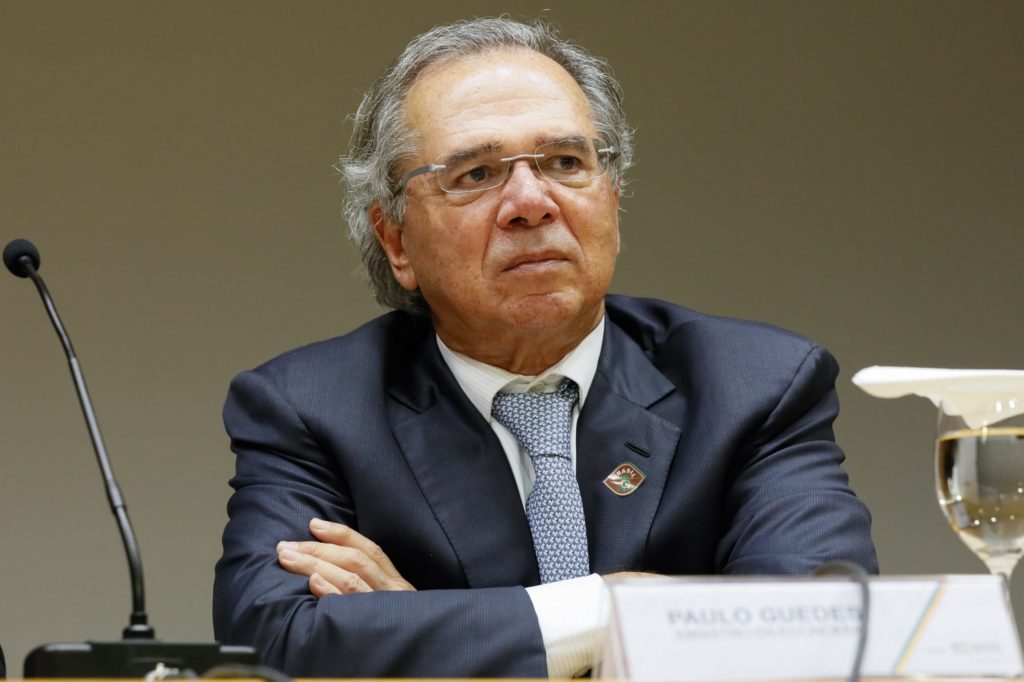RIO DE JANEIRO, BRAZIL – The Minister of Economy, Paulo Guedes, went to the National Congress on Tuesday afternoon, July 21st, to deliver his proposal for the tax reform.

For now, the administration’s proposal involves the unification of the federal PIS and COFINS (Program of Social Integration and Contribution for the Financing of Social Security) taxes, but this is only the first part of a larger reform plan. According to the text, taxes on consumption would become the Contribution on Goods and Services (CBS) tax, with an approximate rate of 12 percent.
The presentation, in a bill format, was officially presented in a ceremony with the presidents of the Chamber, Rodrigo Maia and the Senate, Davi Alcolumbre:
“Today is a historic day. From now on it is in the hands of Congress the opportunity to build the reform we have been awaiting for decades with the vital participation of the Executive,” Alcolumbre said in a press conference.
The Executive’s contribution to the reform is in line with what is already under discussion, added Maia. He further said that people can be legitimately concerned about what is being proposed by the government, “but they are often unaware of what is written or what the purpose of the proposals is,” he said. “It is very important that we can discuss it based on what is written.”
Guedes, who also spoke at a press conference after the ceremony, said the delivery had been delayed again for political reasons, and that the Executive’s proposal only deals with federal taxes “out of respect for Congress and the federation”: “I cannot invade the territory of mayors by discussing Social security,” he said.
The text of the bill currently being considered by Congress, which has been discussed for over a year by legislators, suggests a single tax on consumption, similar to those levied in most developed countries, but unlike the government, it advocates the unification of all taxes – both state and federal.
Guedes said he will be sending all parts of the Executive’s reform proposal: “[which includes] income tax, dividends, indirect taxes, IPIs (Excise Tax), all (federal) taxes will be addressed,” he said.
Later, the particulars of the text will be detailed by José Barroso Tostes Neto, special secretary of the Federal Treasury, and Vanessa Canado, special advisor to the Ministry of Economy.
A complex beginning
Along with the Pension Reform passed last October by legislators, tax simplification has been advocated by the economic team since the start of the current administration as one of its pillars. But the content of the proposal failed to find fertile ground, as it included the introduction of a tax on financial transactions, along the lines of the former CPMF.
With the initial outcry surrounding the former much-despised tax over financial transactions, the project was pushed into the background after Guedes decided to release the proposals for the so-called federative pact, which included an emergency plan to block increased spending on civil service salaries in crisis situations. The resistance of civil servants, who have a tremendous influence among legislators, proved to be a hindrance and ultimately undermined the debate.
Amid the attrition caused by the challenge of moving forward with its reform proposals, the tax bill was ultimately buried by the government in September, with the resignation of Marcos Cintra, the secretary of the Treasury and an advocate of reviving the CPMF for decades.
Meanwhile, Congress was debating two separate proposals, one from the Senate and the other from the Chamber of Deputies, which, containing mostly similar points, had their texts unified following an agreement between the Houses late last year.
Source: Exame

